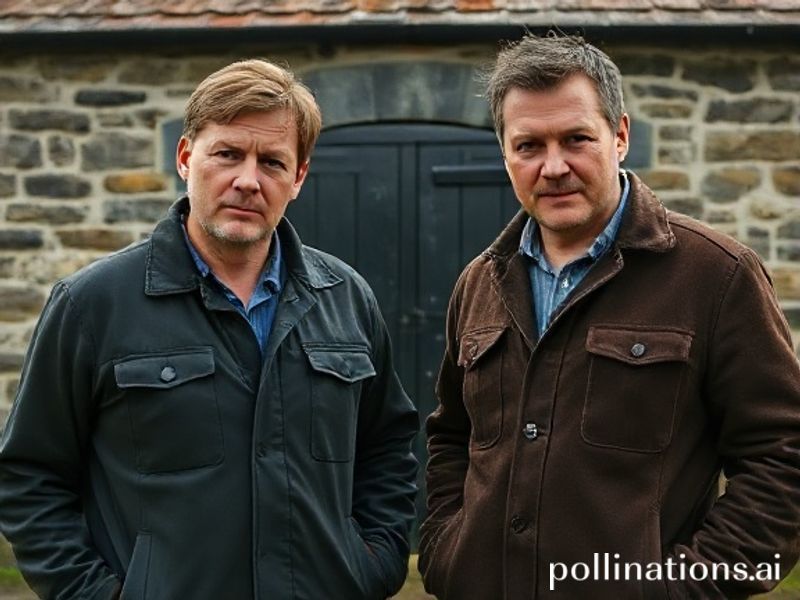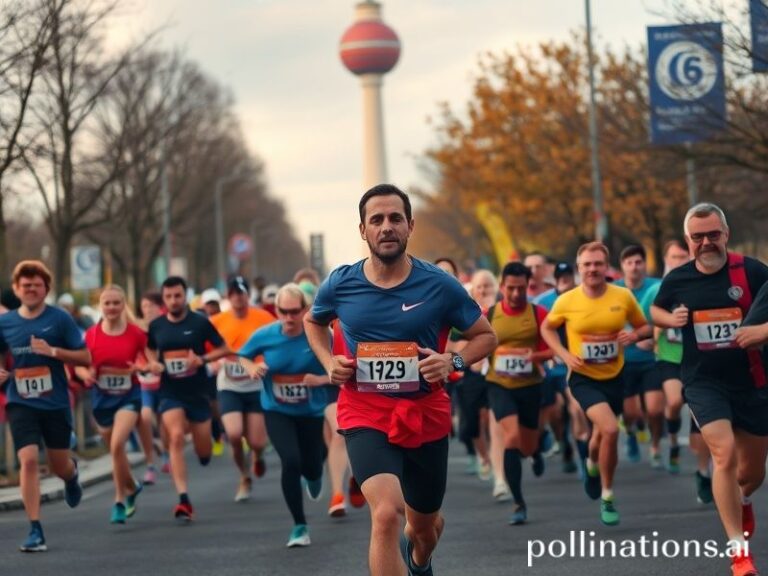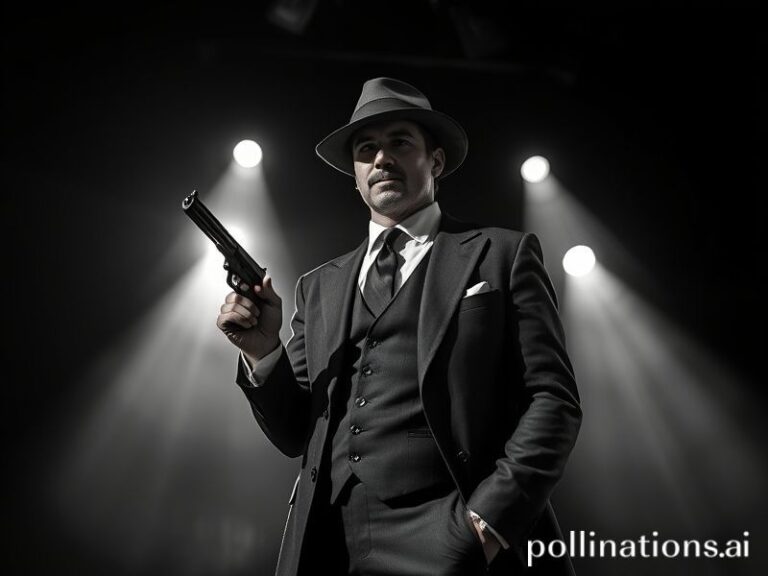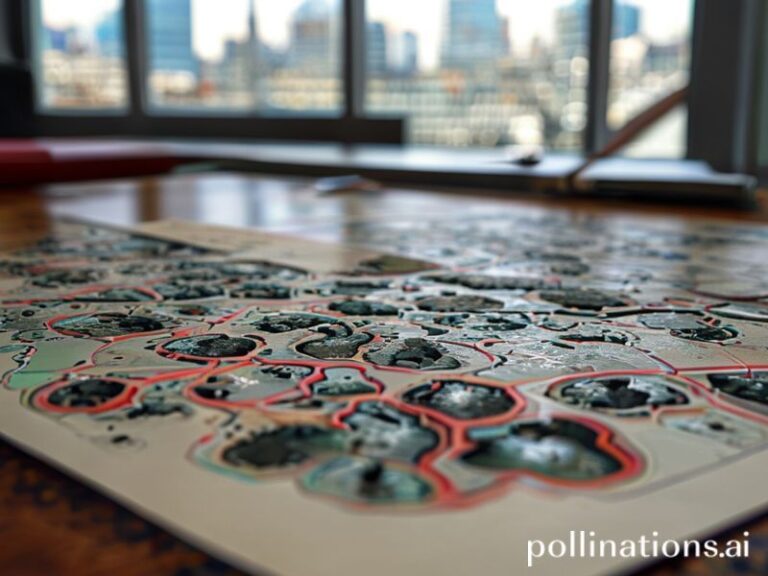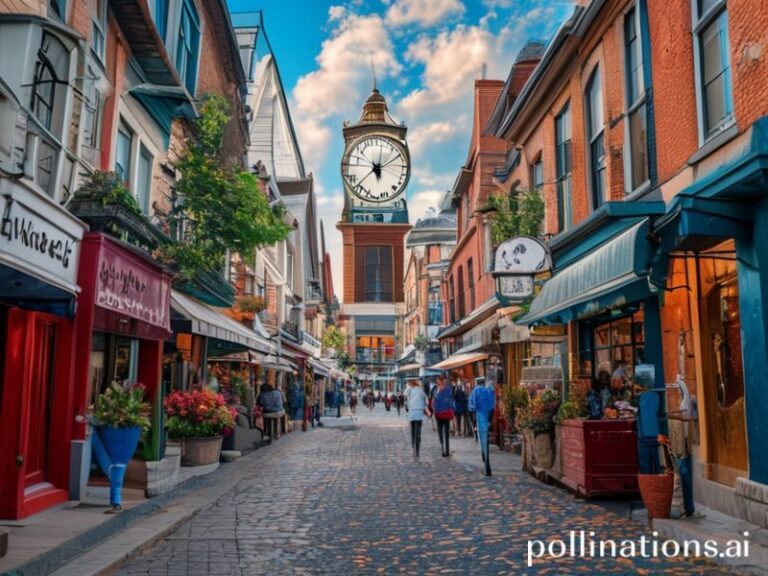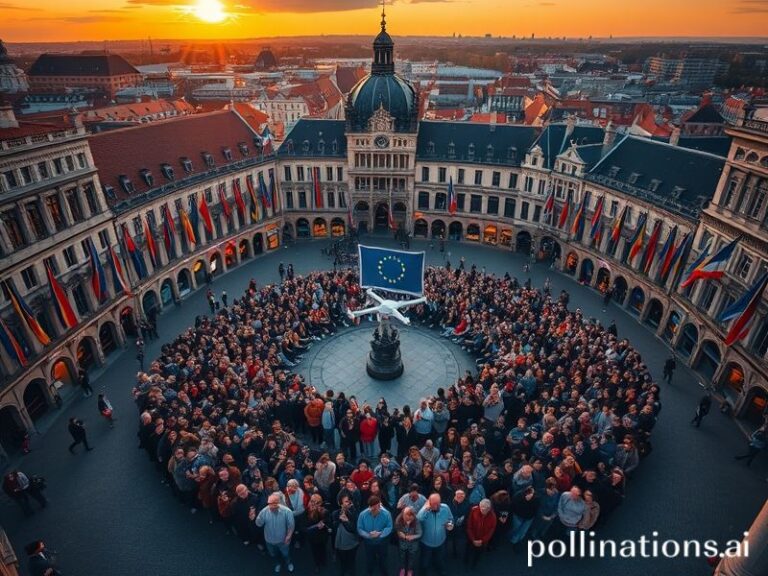From the Dales to Darfur: How Emmerdale’s Brotherly Brawl Became the Planet’s Favorite Blood Feud
**Yorkshire’s Latest Blood Feud Goes Global: How Two Fictional Farmers Became a Mirror for a World That’s Forgotten How to Forgive**
By the time the sun rises over the Dales, the clip of Aaron Dingle punching John Sugden—half-brother, full-time grievance collector—has already ricocheted from a tin-roofed café in Lagos to a co-working loft in Medellín. Emmerdale, a soap opera named after a village with more sheep than voters, is trending in seventeen languages. Sub-editors in Jakarta are captioning the brawl “sibling rivalry”; a Berlin TikToker has set it to techno. Somewhere in Kyiv, a soldier on night watch scrolls past the footage, thinks, “At least their trenches are metaphorical,” and returns to the real ones.
Welcome to the 21st-century coliseum: a 30-minute week-night ritual where invented Brits in gilets act out our collective addiction to inherited trauma. Aaron and John—two men united by DNA and a mutual talent for glower—have become international avatars of the moment when forgiveness files for bankruptcy. Their grievance is parochial (dead dad, stolen truck, the usual), but the emotional IPO is trading worldwide. Netflix may not own Emmerdale yet, but outrage brokers in every timezone are already short-selling reconciliation.
Consider the macro backdrop. While COP29 delegates politely applaud yet another non-binding pledge, Aaron’s left hook translates across cultures: no subtitles required for the universal sentiment “I’d rather break my hand than shake yours.” In a year when global leaders can’t even agree what year it is, the simplicity of two hay-making cousins reenacting the Hatfield-McCoy playbook feels almost quaint—like watching Neanderthals discover fire, then immediately use it to burn each other’s stuff.
The World Bank reports that civil wars now cost the planet roughly eight Emmerdale farms a day. Meanwhile, the soap’s writers—holed up in a Leeds conference room that smells of despair and meal-deal sandwiches—have accidentally scripted the only conflict resolution manual humanity still understands: scream, swing, stalk off to the pub. Mediators in Sudan, take notes.
Soft-power analysts will tell you British exports are Shakespeare, the Beatles, and the ability to queue. They forget the fourth: the capacity to monetise moody weather and even moodier relatives. Emmerdale earns ITV £150 million a year, a figure that eclipses the GDP of several Pacific micro-nations. If Aaron and John ever signed a peace accord, the ensuing ad-revenue dip could probably fund a medium-sized coup somewhere. No wonder the story editors keep the embers glowing; geopolitical stability may depend on it.
Of course, foreign viewers don’t tune in for agricultural accuracy. A Brazilian fan account recently asked why nobody just sells the cursed farm and buys a beach bar in Bahia—an eminently reasonable solution that would collapse the entire Yorkshire rural economy, not to mention the show. But that misses the point: we don’t want solutions. We want the catharsis of watching people more miserable than ourselves argue about compost. It’s cheaper than therapy and only slightly less effective.
Back in the real world, the UN counts 108 active armed conflicts—an all-time high—yet the hashtag #AaronVsJohn outperformed #Gaza, #Sudan, and #Ukraine combined for three hours last Tuesday. Somewhere in Silicon Valley a data intern updates a spreadsheet labelled “Human Attention: Finite,” sighs, and books another mindfulness retreat. The algorithm, like John Sugden, doesn’t do forgiveness; it does repetition with incremental malice.
Tonight, as another episode rolls, diplomats will still be deadlocked in air-conditioned rooms, and displaced families will still be negotiating survival. But millions will pause their own disasters to watch two fictional brothers ruin a perfectly good barn. The smart money says Aaron and John will eventually hug it out—ratings plateau, advertisers get nervous, reconciliation becomes the new product line. Until then, their circular vendetta offers the globe something increasingly rare: a conflict whose casualties are purely narrative, and whose refugees exist only in the ad breaks.
In other words, a happy ending—just not for the characters.

